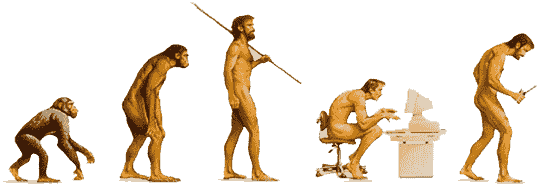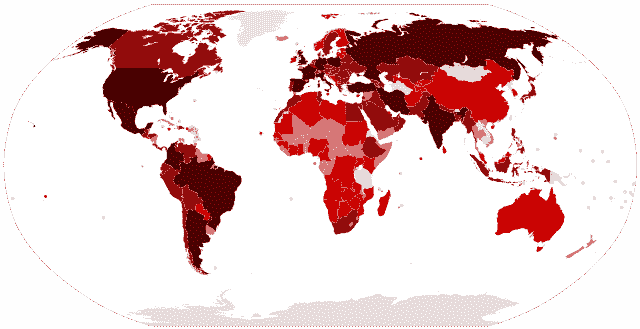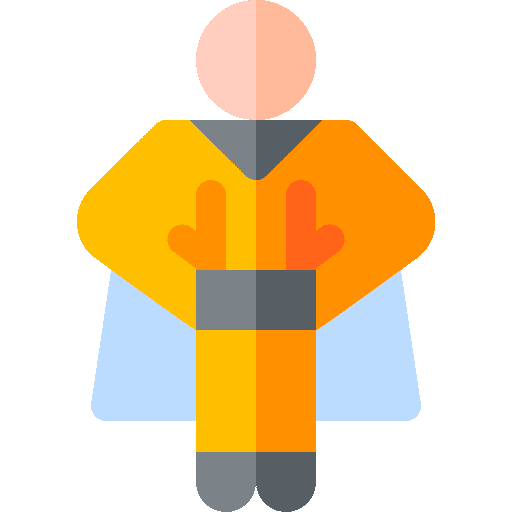From the dawn of time, humans have been engaging in a series of endeavors to facilitate their collective survival and improve their well-being.
After several failed iterations, humanity has finally arrived at a system that seems to stand the test of time: modern civilization.
However, despite its apparent success leading to a globalized agricultural, economical and political structure, one of its underlying phenomena, human domestication, remains largely unexamined.
Because of that, this will be the topic we'll be delving into. We'll begin by examining the very concept of domestication, its wide-ranging examples and impacts, before looking into how this applies to humans — and what lessons we can extract from them.

Domestication Explained
Overview
When we think about domestication, the first things that come to mind are often animals such as cows and dogs. However, domestication is not a phenomenon that is restricted to animals, and can actually be defined more broadly as follows:
The process whereby one group — in order to satisfy certain needs — chooses to assume the long-term care and control over another group, who is made to work in some way to fulfill those needs.
Here, the first group can be also referred to as the 'domesticator', and the second group as the 'domesticate'. And since the word 'domestic' means 'related to a household', the work domesticates are tasked on are often related to a dwelling (or their surrounding).
Historically, domestication has provided us with a means of obtaining resources we might not have been able to obtain otherwise. These include, among others:
Here, the domesticates could be livestock, crops, pets, houseplants, fish, zoo animals or anything in between, with some form of domestication being more humane than others.
Benefits and Drawbacks
Traditionally, we like to think of domestication as a mutualistic, win-win trade between both parties, but the truth is that it's usually more complex and nuanced than can be characterized as a "mutual net benefit".
For example, can we really say that:
In many cases, these organisms are certainly becoming more secure, but not freer. And they can't really manifest the full expression of themselves — as they do in the wild.
Furthermore, since domestication is a "naturalization" process, it can also change the domesticate as a species in a profound way. These changes include, among others:
In short, domesticates tend to be "cuter, more degenerate and more vulnerable" — a phenomenon coined in the scientific sphere as the domestication syndrome. This applies not only to animals, but to plants and Homo Sapiens as well.

By default, domestication usually presupposes the reproductive control of a group (i.e. biological domestication), but if we were to relax that requirement, then we'll see that we now have a concept to describe many of the phenomena we're facing today.
In particular, we'll see that many of the aspects mentioned above also apply when we consider the case of humans as their own domesticates. But before that, we need to take a look at modern civilization — and see how our society became that way.
Modern Civilization Explained
Overview
By definition, a civilization is simply a system designed for the long-term management of human beings. For a small group of people, such a structure can be made relatively simple, but it can become complex quickly as the number of its citizens increases.
Historically, the evolution of civilization can be roughly summarized as follows:
In fact, when we think of a modern civilization nowadays, we're often thinking about a system with the following components:
How Modern Civilization Domesticates Us
On the surface, the story of modern civilization has been that of progress, but underneath that progress, there's also a coercive system of lifestyles, rules and unspoken rules that prevents us from fully realizing ourselves.
And with the advent of technology and information revolution, this trend only really becomes more and more apparent. For example:
Indeed, one could even argue that in this day and age, what domesticates humans — our domesticators — are often not individual human beings but a collection of humans with a certain social role.
Of course, some of these examples might seem a bit outlandish or far-fetched at first, but they don't necessarily need to be a bad thing. After all, the domesticates only subject themselves to the care and control of others to further their own interests, so there's a win-win aspect to it.
Benefits and Drawbacks
Overall, human domestication has been a remarkable driver of progress, with some of the most incredible achievements including, among others:
However, when the different kinds of domestications are accumulated and compounded over time, we also start to lose sight of what we are as a species — as we no longer have a "placebo" point of reference to compare with.
If anything, the story of humanity so far has been mostly about how it exerts more and more control over nature, all of the while becoming more and more docile and less and less self-sufficient on a massive scale — a progress trap.
In fact, on the average we're getting physically weaker, mentally weaker, spiritually weaker and less attuned to our environment. The system that is designed to maximize our security is also now making us more degenerate and less free than ever.
Sure, we might have domesticated our landscape to promote better transportation and commerce (and to rule out predators, conflicts and natural dangers), but the reality is that this is less of a show of power than humanity in self-subjugation and self-confinement.

In many areas of the world, the level of development even correlates poorly with happiness. Okinawa, for instance, being one of the poorest places in Japan, is also known for their diet, longevity and spiritual way of life.
And with our rapid development in technologies, this is a trend that we can expect to continue: that we'd become more and more dependent on solutions which require technology or the input of an industry — at the cost of our own self-sufficiency.
Human Domestication Continues
In late 2019, humanity was hit by a new strain of virus (with origin linked to the circulation of wild animals under questionnable sanitary conditions). This would result in a respiratory disease known as COVID-19, which has since then turned into a global pandemic.

To be sure, the fact that COVID-19 turned into a pandemic also has much to do with our globalized economy and the modern civilization itself, but the most concerning part about it is actually not the virus itself — but our reaction to it:
In retrospect, while some of these measures have proven to be instrumental in attenuating the temporary spread of the virus, the overall reaction to the pandemic has been nothing short of devastating.
Indeed, from business shutdown, event canceling to depression and suicides, the drastic intervention made by our different institutions has already led to a historic loss of social liberty and individual agency around the world.
To put it more bluntly:
It is as if we're in our own zoo, reacting panically after discovering that our masters have just pulled the plug (and that there's nothing we can do about it).
Of course, sometimes harsh circumstances are what it takes for us to realize that we're actually on a leash. And if we were to fall into poverty, hunger or diseases, it'd be because we've been self-domesticating ourselves to be self-insufficient to begin with.
So does that mean that our reaction to COVID-19 has brought us nothing but tragedies? Of course not. For example:
Most importantly, these developments have provided us with a time to take a good look at ourselves: to figure out what we really want as a species, to figure out how we should move forward to regain our freedom and dignity.
What's The Way Out?
Obviously, humanity has come a long way since the pre-historic age, and our domestication has played a key role in moving us towards a more efficient world. This means that whether we like it or not, many of our practices are here to stay.
However, just as it would be foolish to reject everything modern civilization has to offer, it would be also foolish to accept all attempts of domestication we've been subject to — for the simple reason that they can prevent us from living a life that is aligned with our true nature.
Fortunately, the way toward a less domesticated life is actually very simple, and can be achieved by adhering to the following motto: "humanity strong and free". This means in particular working on things that make us stronger, while chasing after things that enliven us.
Working on Self-Sufficiency
In a nutshell, being self-sufficient means mastering a set of skills that reduce our dependence towards others, without necessarily becoming completely detached from them. Doing so will give us more choices and reduce the control our domesticators have over us, and allow us to switch back and forth between both worlds as we see fit.
For example, in terms of survival, self-sufficiency could mean:
In terms of lifestyle, self-sufficiency could mean:
And in terms of cultivating intelligence and health, self-sufficiency could mean:
In other words, acts of self-sufficiency can be either large or small, and one doesn't need to detach themselves from civilization to do it.
Embracing Full Self-Expression
It's often said that one of most important things in life is the actualization of self. However, one can also get in touch with their inner core by expressing themselves through some very basic activities.
For example, in terms of physical activities, self-expression could mean:
In terms of contact with nature, self-expression could mean:
And in terms of spiritual health, self-expression could mean:
In brief, the pursuit of self-expression is about chasing after what makes us feel alive, so that at the end of the day, we don't have to say that we are animals under shackles — because we've structured our routines to routinely remind ourselves of who we are.
So that even though our civilization has evolved in such a way that we often have to go against the norms to undomesticate ourselves, ultimately, there are still much we can do to make sure that our lifestyle and choices do not work in our peril.

